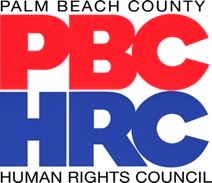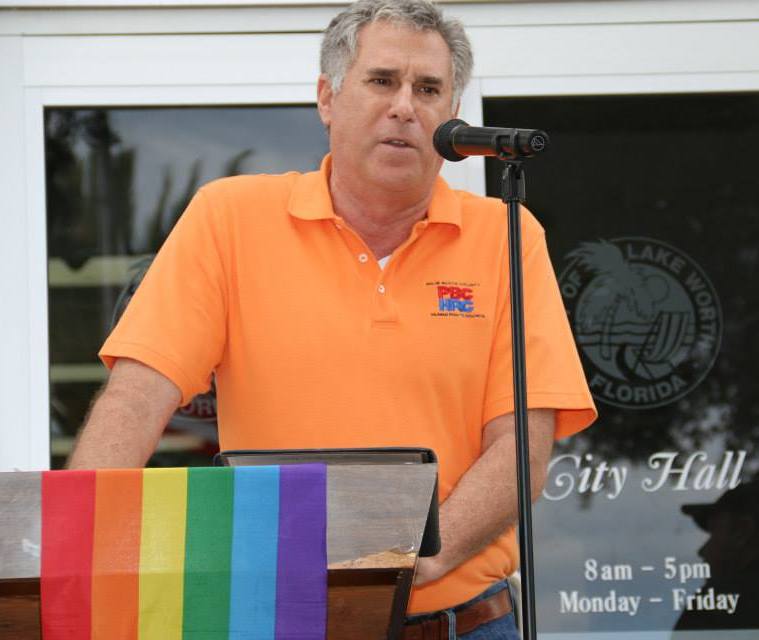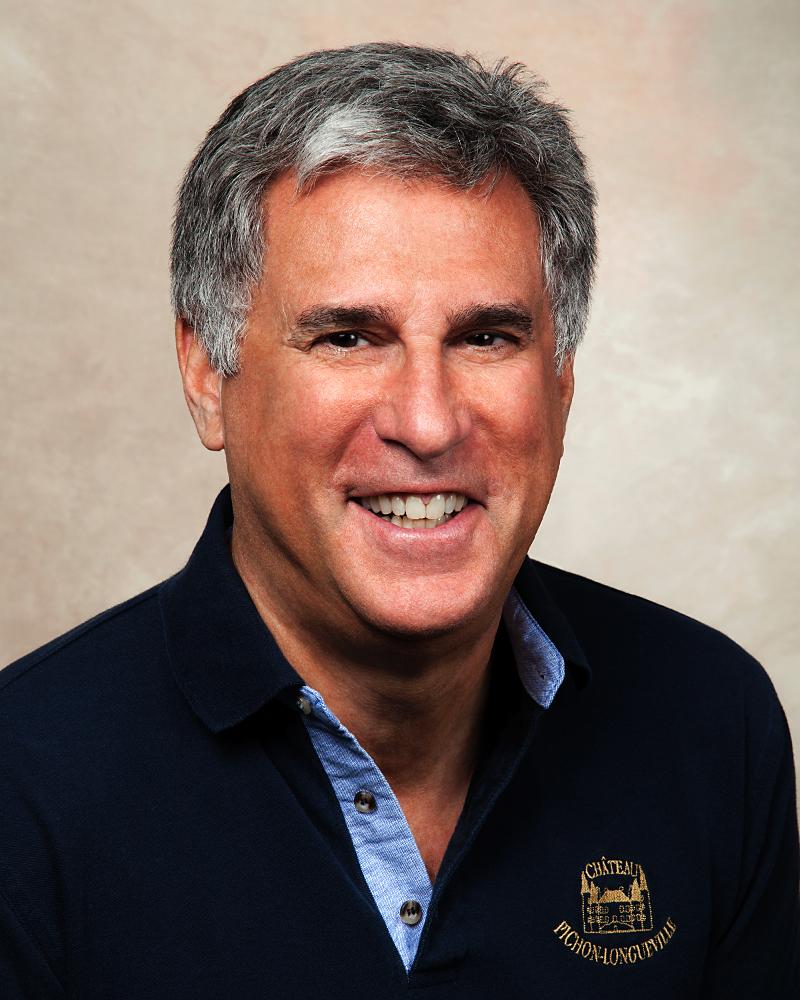http://www.mypalmbeachpost.com/news/news/local-govt-politics/palm-beach-county-expands-anti-bias-law-to-include/nnk2w/
By
Wayne Washington
-
Palm Beach Post Staff Writer
September 23, 2015
WEST PALM BEACH — With
demands for freedom of religious expression spilling into the
presidential race — and sparking fears of renewed discrimination — Palm
Beach County vastly expanded the types of businesses that are expressly
barred from discriminating against customers and would-be customers.
At the urging of
the Palm Beach County Human Rights Council
— a group best known for its work in protecting the rights of gays and
lesbians — the County Commission voted 6-0 Tuesday to expand the
definition of what is considered a “public accommodation.”
The
county’s anti-discrimination law has, for a quarter century, barred
discrimination in public accommodations, typically thought of as
restaurants and places of lodging and entertainment.
Now, though,
the county has expanded the definition of public accommodation to
include a broad range of businesses, including retail outlets and places
of transportation.
“This is really a big deal,” said Rand Hoch,
the president and founder of the West Palm branch of the Human Rights
Council. “This is just putting it out there that if you hold yourself
out there to serve the general public, you can’t do that if you’re going
to discriminate against members of that public.”
Hoch alluded to
incidents in Florida and other states to highlight the potentially
sweeping impact of the county’s expanded ordinance, which was first
discussed in August.
On Monday, a transgender woman live-tweeted
her experience of being detained by security officials at Orlando
International Airport because of what they described as “an anomaly,”
her penis.
The woman said she missed her flight.
“Yesterday,
the airport (in Palm Beach County) wasn’t a public accommodation,” Hoch
said. “Today, the airport is a public accommodation.”
Owners of
an Indiana bakery made national news last year when, citing religious
objections, they refused to bake a wedding cake for a gay couple.
After
Indiana passed a “religious tolerance” law some saw as giving
businesses permission to discriminate, many canceled vacations and
conventions in the state. The law was eventually modified.
The
bakery, boycotted by some who saw its actions as discriminatory, closed
in December, though its owners said it remained financially viable.
“Today,
the bakery is a public accommodation,” Hoch said, adding that a bakery
in Palm Beach County could not legally refuse to bake a wedding cake for
a gay couple.
Since it was passed in 1973, Palm Beach County’s
anti-discrimination ordinance has been modified to include additional
groups of people, but the limited definition of a public accommodation
remained, a sort of relic, Hoch said, of the civil rights-era protests
that led to its creation.
First-time violators of Palm Beach
County’s anti-discrimination ordinance can be fined as much as $10,000. A
second violation within five years could bring a fine of up to $25,000.
And three violations within seven years could mean a fine of as much as
$50,000.
Complainants can sue in court or go to the Fair Housing Board.
Demands
for freedom of religious expression exploded into the presidential race
this year when Kim Davis, an elected county clerk in Kentucky, said her
religious faith compelled her to refuse to issue the wedding licenses
to gay couples, despite a recent U.S. Supreme Court decision requiring
it.
On the day of her release, Davis was greeted by two Republican
Party candidates for the president — U.S. Sen. Ted Cruz of Texas and
former Arkansas Gov. Mike Huckabee. Both men praised her and blasted her
jailing as the “criminalization” of Christianity. Others, however,
argued that Davis’ behavior was homophobic, discriminatory and illegal.
“This is the real world,” Palm Beach County Commissioner Priscilla Taylor said. “Discrimination still exists.”
When
the Human Rights Council first asked the County Commission to expand
the definition of places of public accommodation last January, “its main
priority was to prohibit consumer racism in retail stores — a practice
known as ‘shopping while black,’ ” Hoch said.
The experience of
people of color being refused service, or given poor service, is not
uncommon. Many African Americans describe as a sort of black right of
passage being followed in a store or being asked, repeatedly, “Can I
help you?”
Hoch said the Human Rights Council gets two or three
calls a year from black residents describing an unpleasant shopping
experience. According to the council, the complaints include being
wrongly detained, steered away from certain products and asked for
additional forms of identification regarding credit applications.
“They’d say they were followed in the store and treated like a criminal,” Hoch said. “They said it was embarrassing.”
Palm
Beach County’s expanded ordinance puts it on legal par with other
counties in the southern part of the state. Hoch, however, said he’d
like the see it adopted by the state Legislature.
Previous efforts to expand the state’s anti-discrimination laws have failed.
Typically, the push back against expanding anti-discrimination laws have come from business owners worried about being sued.
Officials
with the Business Political Action Committee of Palm Beach County could
not be reached for comment on the county’s expanded ordinance. Danny
Martell, president and chief executive officer of the Economic Council
of Palm Beach County, said he does not know enough about the expanded
ordinance to comment on it.
Commissioners passed changes to the
ordinance without comment on Tuesday, but that doesn’t diminish the
importance of the move, Taylor said.
“I don’t think we can do too much to protect the rights of people,” she said.
WHAT THE LAW MEANS
Retail
businesses and places of travel join restaurants, bars and places of
lodging and entertainment on the list of “places of public
accommodation” that legally cannot discriminate based on race, sex,
color, religion, national origin, disability, familial status, sexual
orientation, age, marital status, and gender identity or expression.
That
means Palm Beach County could issue fines to stores whose employees
give inferior service to black customers based on their race or to bakeries that refuse to sell a wedding cake to a gay couple.
 "It's the biggest expansion in civil rights in the city and county in
decades," Rand Hoch, president of the Human Rights Council, said
Tuesday.
"It's the biggest expansion in civil rights in the city and county in
decades," Rand Hoch, president of the Human Rights Council, said
Tuesday.  Florida laws are "really bad, really primitive" and may take years to change, he said.
Florida laws are "really bad, really primitive" and may take years to change, he said.  Florida laws are "really bad, really primitive" and may take years to change, he said.
Florida laws are "really bad, really primitive" and may take years to change, he said. 



 "The ordinance traced its roots back to civil rights laws written in
the 1960s when it was legal to have 'Whites only' hotels, restaurants
and bars and the County Commissioners only addressed inequities had
occurred in very few places of commerce," explains Rand Hoch, President
and Founder of the Palm Beach County Human Rights Council. "As we know,
discriminatory acts are not limited to those few places."
"The ordinance traced its roots back to civil rights laws written in
the 1960s when it was legal to have 'Whites only' hotels, restaurants
and bars and the County Commissioners only addressed inequities had
occurred in very few places of commerce," explains Rand Hoch, President
and Founder of the Palm Beach County Human Rights Council. "As we know,
discriminatory acts are not limited to those few places." 



 They also may have found that once you were out, you could hit a wall of discrimination that was hard and hurtful.
They also may have found that once you were out, you could hit a wall of discrimination that was hard and hurtful. when members gave him two weeks to go to San Francisco and attend the Democratic National Convention.
when members gave him two weeks to go to San Francisco and attend the Democratic National Convention.


 "
" "
" "While marriage equality is now the law of the land across America, the
state of Florida Florida lacks a statewide laws prohibiting
discrimination against LGBT people in employment, housing and public
accommodations," said Rand Hoch, President and Founder of the Palm
"While marriage equality is now the law of the land across America, the
state of Florida Florida lacks a statewide laws prohibiting
discrimination against LGBT people in employment, housing and public
accommodations," said Rand Hoch, President and Founder of the Palm  Unlike Floridians living in approximately 90% of Florida’s 67 counties,
Palm Beach County’s LGBT residents are protected from discrimination in
employment, housing and public accommodations. Our public school
students are protected from harassment based on sexual orientation and
gender identity. And unmarried lesbian and gay couples can register as
domestic partners and enjoy limited benefits.
Unlike Floridians living in approximately 90% of Florida’s 67 counties,
Palm Beach County’s LGBT residents are protected from discrimination in
employment, housing and public accommodations. Our public school
students are protected from harassment based on sexual orientation and
gender identity. And unmarried lesbian and gay couples can register as
domestic partners and enjoy limited benefits. Earlier this year, PBCHRC launched our "Palm Beach County: You’re Welcome”
campaign to encourage local municipalities to enact LGBT-inclusive
civil rights ordinances. So far this year, two new ordinances have been
enacted. Boynton Beach and Greenacres have enacted LGBT-inclusive civil
rights ordinances. (Special thanks go out to PBCHRC Board Member
Meredith Ockman and Greenacres City Councilwoman Paula Bousquet for
their successful work in Greenacres). Local municipal LGBT inclusive
civil rights ordinances have long been in effect in both Lake Worth and
West Palm Beach.
Earlier this year, PBCHRC launched our "Palm Beach County: You’re Welcome”
campaign to encourage local municipalities to enact LGBT-inclusive
civil rights ordinances. So far this year, two new ordinances have been
enacted. Boynton Beach and Greenacres have enacted LGBT-inclusive civil
rights ordinances. (Special thanks go out to PBCHRC Board Member
Meredith Ockman and Greenacres City Councilwoman Paula Bousquet for
their successful work in Greenacres). Local municipal LGBT inclusive
civil rights ordinances have long been in effect in both Lake Worth and
West Palm Beach. While I am on the topic of education, late last month PBCHRC presented the inaugural Daniel S. Hall Social Justice Award
to Ethan Kennedy. The scholarship is named after Dan Hall, who has
served as PBCHRC’s treasurer for the past 25 years. Ethan, who recently
graduated from Oxford Academy, founded and served as president
of his school’s Gay-Straight Alliance (GSA). He was also responsible for
implementing the school's participation in the National Day of Silence,
a day of action in which students vow to take a form of silence to call
attention to the silencing effect of anti-LGBTQ bullying and harassment
in schools. Ethan will be attending New College of Florida, where he
plans to study Political Science and Women's/Gender Studies.
While I am on the topic of education, late last month PBCHRC presented the inaugural Daniel S. Hall Social Justice Award
to Ethan Kennedy. The scholarship is named after Dan Hall, who has
served as PBCHRC’s treasurer for the past 25 years. Ethan, who recently
graduated from Oxford Academy, founded and served as president
of his school’s Gay-Straight Alliance (GSA). He was also responsible for
implementing the school's participation in the National Day of Silence,
a day of action in which students vow to take a form of silence to call
attention to the silencing effect of anti-LGBTQ bullying and harassment
in schools. Ethan will be attending New College of Florida, where he
plans to study Political Science and Women's/Gender Studies. to thank the Harvey Milk Foundation for presenting me (along with
five other LGBT leaders from South Florida) with the organization’s
inaugural Diversity Honors Award at wonderful gala held at Seminole Hard Rock Hotel & Casino. PBCHRC also wishes to thank two longtime supporters -
to thank the Harvey Milk Foundation for presenting me (along with
five other LGBT leaders from South Florida) with the organization’s
inaugural Diversity Honors Award at wonderful gala held at Seminole Hard Rock Hotel & Casino. PBCHRC also wishes to thank two longtime supporters - 